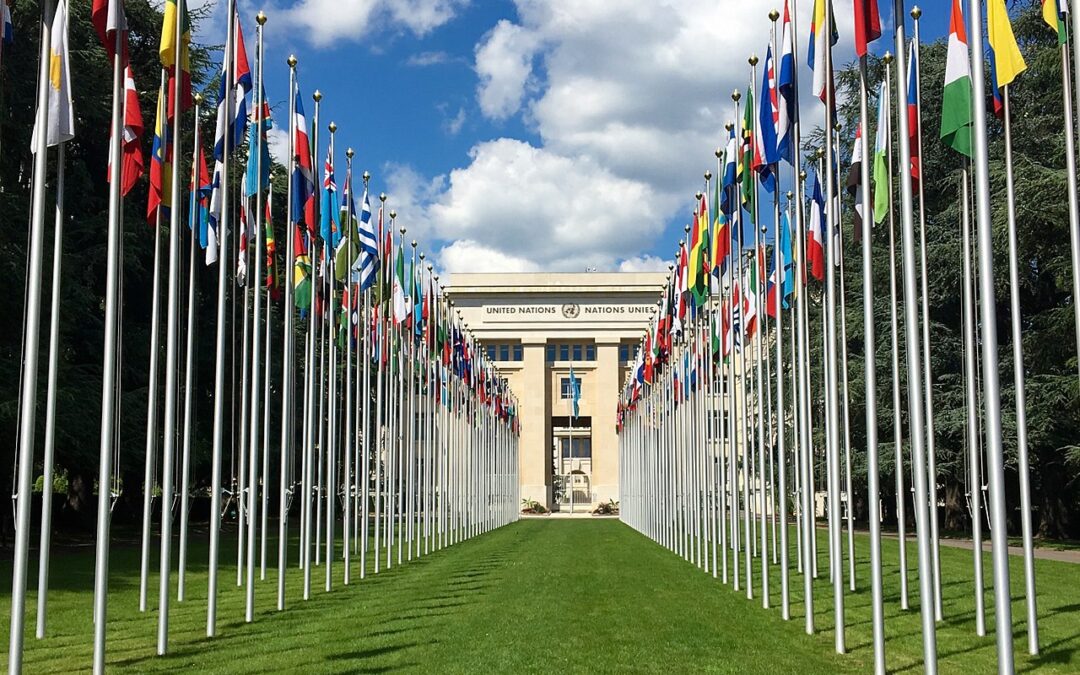
Jul 10, 2020 | Advocacy, News, Non-legal submissions
Today, the ICJ submitted a report to the UN Human Rights Council Working Group on the Universal Periodic Review (UPR) ahead of the review of Nepal’s human rights record in January-February 2021.
In the submission, the ICJ, Advocacy Forum – Nepal (AF), Terai Human Rights Defenders Alliance (THRD Alliance) & University of Passau, provided information and analysis to assist the Working Group to make recommendations to the Government of Nepal to take measures to prevent acts of torture and ill-treatment; to implement a human rights compliant legal framework for accountability and remedy and reparation for victims; and institute other measures to comply with its international obligations, including ratification of international human rights instruments.
In light of the concerns set out above, the ICJ, AF and THRD Alliance call upon the UPR Working Group and the Human Rights Council to recommend the following to Government of Nepal:
- Ensure that the law criminalizing torture is consistent with international law, through the passage of an anti-torture law, and/or through amendment to the current Penal Code, including that the:
-
- Definition of torture in national law is in line with the CAT and other international treaty provisions;
- Statutory limitation or prescription periods for the filing of complaints or cases of torture or other ill- treatment be removed;
- Penalties for torture are commensurate to the gravity of the offence;
- Definition of reparation encompasses restitution, compensation, rehabilitation (including medical and psychological care, as well as legal and social services), and guarantees of non-repetition;
- Independent mechanisms for the regular monitoring of places of detention are established, or existing mechanisms adequately supported.
- Ensure that all allegations of torture are registered, investigated and prosecuted by an independent and impartial investigative body;
- Ensure that all detainees have access to legal representation;
- Collect and publicize data on allegations of torture and ill-treatment, including prosecutions and any measures, including disciplinary measures, taken against perpetrators;
- Establish an independent police service commission or equivalent body to ensure fair and transparent appointment, promotion, transfer of police officers and to oversee disciplinary complaints against the police;
- Establish a consistent system of documentation in each police station and at any detention facilities, in particular, concerning the entry into and release of detainees from custody, as well as the procedure during interrogations;
- Systematize human rights education and training in police training programmes, including medico-legal training (based on Istanbul Protocol);
- Ensure that victims are adequately involved in criminal proceedings, in accordance with international standards developed for this purpose;
- Ratify OPCAT and establish a national preventative mechanism that complies with its requirements; become a party to other core human rights treaties to which Nepal is not yet a party;
- Accept the requests to visit Nepal from UN special procedures, including the Working Group on Enforced and Involuntary Disappearances, the Special Rapporteur on Torture, Special Rapporteur on extrajudicial, summary or arbitrary executions and the Special Rapporteur on the promotion of truth, justice, reparation and guarantees of non-recurrence.
Download
Nepal-UPR-Submission-2020-ENG (PDF)
Contact
Frederick Rawski, ICJ Asia and Pacific Regional Director, e: frederick.rawski(a)icj.org
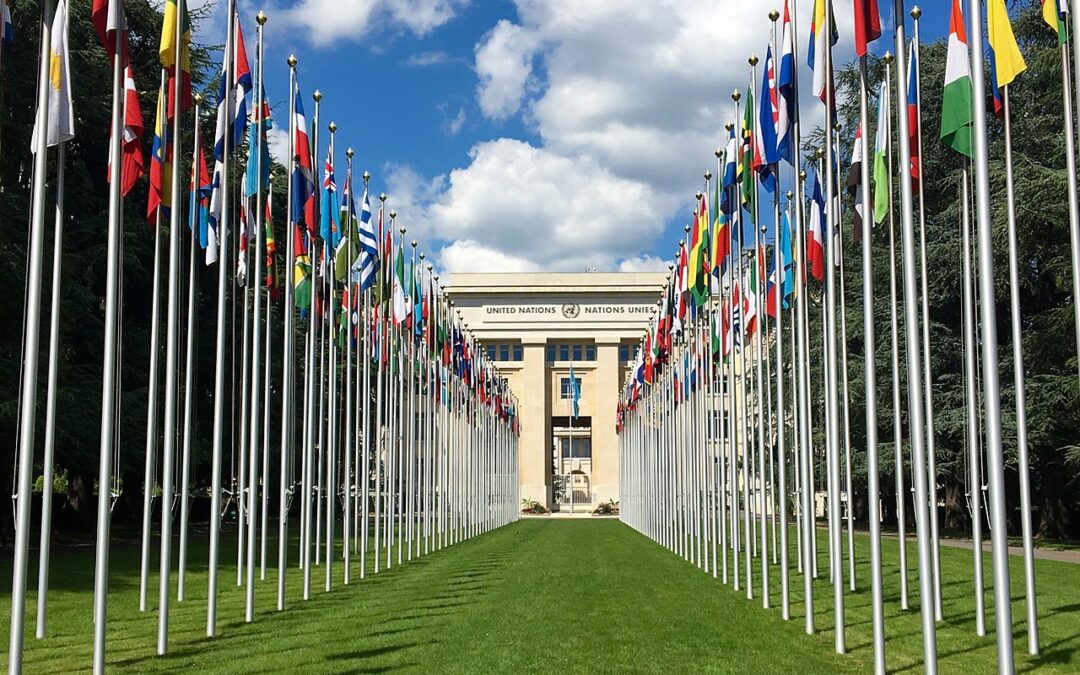
Jul 10, 2020 | Advocacy, News, Non-legal submissions
Today, the ICJ submitted a report to the UN Human Rights Council Working Group on the Universal Periodic Review (UPR) ahead of the review of Myanmar’s human rights record in January-February 2021.
The ICJ stressed the lack of accountability and redress for victims – and the resulting continued culture of impunity – for widespread gross human rights violations constituting crimes under international law in Myanmar, particularly those involving members of Myanmar’s Defence Services.
Certain provisions under the 2008 Myanmar Constitution as well as national laws such as the 1959 Defence Services Act and 1995 Myanmar Police Force Maintenance of Discipline Law shield security forces from public criminal prosecutions in civilian courts. Closed court martial proceedings also deny victims and their families the right to truth about human rights violations.
The Myanmar National Human Rights Commission (MNHRC), Myanmar’s national human rights institution with the mandate to investigate allegations of human rights violations, has not initiated any substantive or credible investigation into allegations of widespread and systematic human rights violations perpetrated in recent years by soldiers against persons from ethnic minorities, despite being recorded in detail in the reports of the UN Independent International Fact-Finding Mission on Myanmar and the UN Special Rapporteur on the situation of human rights in Myanmar.
Rather than strengthen the role of civilian courts and the MNHRC, Myanmar has set up ad hoc commissions of inquiry to investigate such incidents. However, these inquiries have a recommendatory mandate and an unclear relationship with the judiciary. The full report of the findings of these commissions are generally not publicly disclosed. Against this backdrop, Myanmar has ceased cooperation with the UN Special Rapporteur for Myanmar and rejected other UN and international accountability mandates.
In light of this, the ICJ recommended the following actions, among others:
- For the MNHRC to investigate all allegations of gross human rights violations, especially including crimes under international law;
- For the Parliament to repeal or amend the 1959 Defence Services Act to bring it in line with international human rights law and standards and ensure that gross human rights violations and serious international humanitarian law violations perpetrated by soldiers can only be prosecuted in civilian courts;
- For the Union Government to publish the full report of the findings of ad hoc commissions of inquiry, such as that of the Independent Commission of Enquiry;
- For the Union Government to issue an open invitation to and cooperate with the Special Rapporteur on the situation of human rights in Myanmar, the Office of the High Commissioner for Human Rights as well as the UN Independent Investigative Mechanism on Myanmar; and
- For the Union Government to cooperate with the International Criminal Court.
The ICJ also called for Myanmar to become a party to key human rights treaties, such as the International Covenant on Civil and Political Rights, that the State committed – yet failed – to accede to in its previous UPR cycle.
Download
Myanmar-UPR-Submission-2020-ENG (PDF)
Contact
Jenny Domino, ICJ Associate Legal Adviser, e: jenny.domino@icj.org
Kingsley Abbott, Coordinator of the ICJ’s Global Accountability Initiative, e: kingsley.abbott(a)icj.org
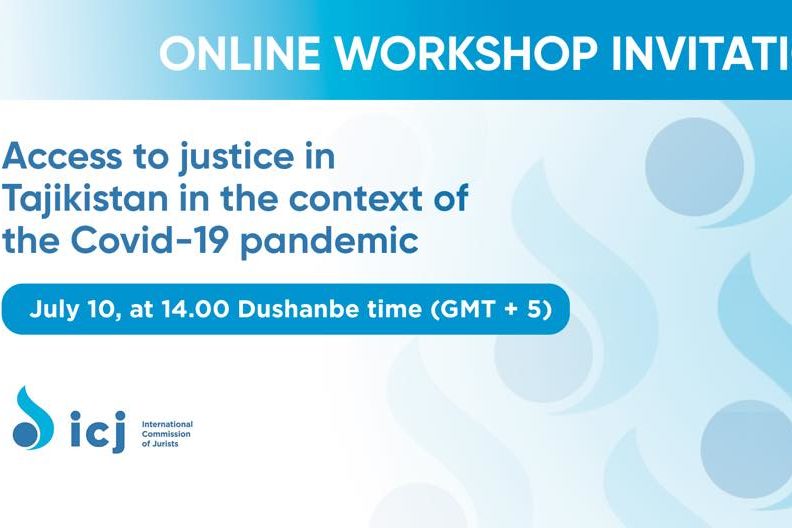
Jul 9, 2020 | Agendas, Events, News
The ICJ is holding an online discussion for lawyers and other representatives of civil society in Tajikistan on access to justice in the context of the Covid-19 pandemic. The discussion is held on 10 July 2020 from 14.00 to 17.00 Dushanbe Time (GMT + 5) on the GoToMeeting platform
The discussion aims to raise some of the main issues that lawyers face in providing legal representation both in and outside of courts.
The event will present an opportunity for practicing lawyers, NGOs and IGOs to discuss the recent challenges that the legal profession faced in Tajikistan as well as seek some of the solutions based on international law and best practices of other countries.
During the discussion, relevant international law and standards as well as comparative examples from the Central Asian countries and Azerbaijan will be discussed.
To participate in the discussions registration is required on the following link : https://forms.gle/QRywqBFPSxfR5eyk7
Working languages of the event are Russian and Tajik.
Contact:
Dilshod Juraev, t: +992 77 700 18 34 ; e: Dilshod.jurayev(a)icj.org
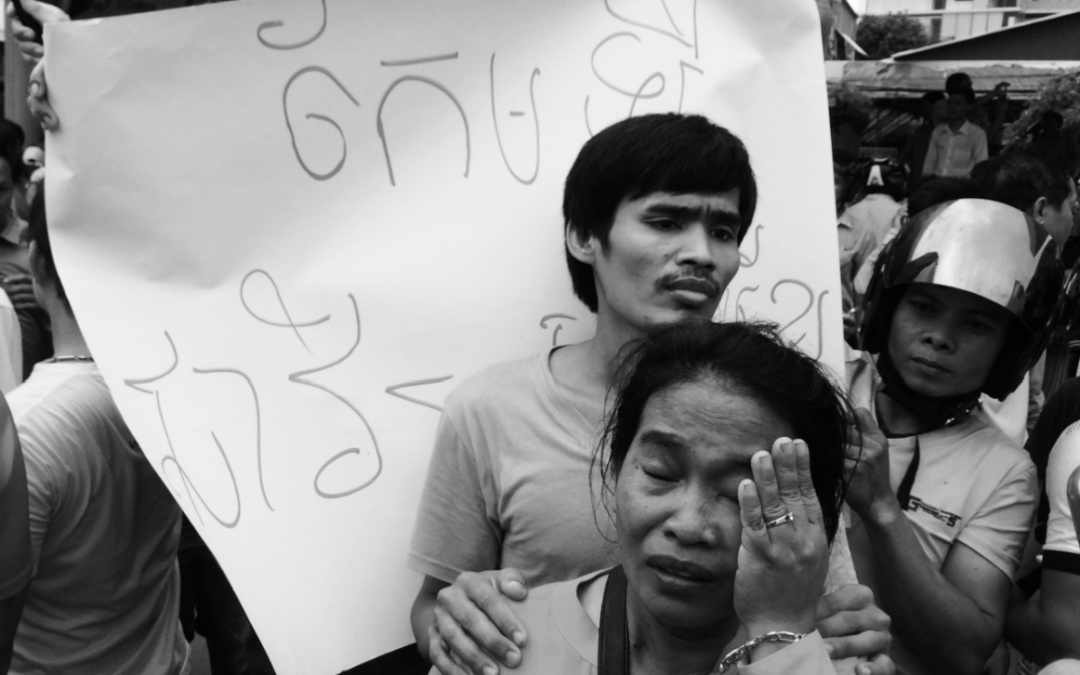
Jul 9, 2020 | News
Today, in advance of the fourth anniversary of the killing of prominent political commentator and human rights defender Kem Ley, the ICJ and 29 other organizations called on Cambodian authorities to create an independent Commission of Inquiry to conduct an effective and impartial investigation that is long overdue into Kem Ley’s death.
The organizations further urged Cambodian authorities to cease intimidation and harassment of persons peacefully commemorating his passing.
On 10 July 2016, Kem Ley was shot and killed at a petrol station in central Phnom Penh. Without conducting a prompt, thorough, and independent investigation, and following a half-day trial which was widely criticized for failure to meet international fair trial standards, in March 2017, Oeuth Ang was found guilty of the murder of Kem Ley and sentenced to life imprisonment.
Since 2016, many international and domestic human rights organizations have consistently called on the Cambodian government to set up an independent Commission of Inquiry to conduct a prompt, impartial, and effective investigation into this killing, with emphasis on examining the potential criminal responsibility of persons other than the direct perpetrator, in line with international standards set out in the International Covenant on Civil and Political Rights (ICCPR).
The UN Principles on the Effective Prevention and Investigation of Extralegal, Arbitrary and Summary Executions as well as the revised Minnesota Protocol on the Investigation of Potentially Unlawful Death reinforce the duty of governments to investigate unlawful deaths and to establish an independent commission of inquiry when states, like Cambodia, lack effective procedures to conduct such an investigation in accordance with international standards.
The Cambodian government, has to date, failed to take any steps towards the establishment of such an independent and impartial investigative body. Given the government’s unwillingness to conduct an independent investigation into Kem Ley’s killing, and civil society’s highly warranted lack of trust and confidence in Cambodia’s justice system which lacks the requisite levels of independence to adjudicate cases involving public officials, this body should be established under the auspices of the United Nations and composed of independent experts.
Following the killing of Kem Ley, the Cambodian authorities have continually monitored, harassed, and ultimately disrupted and prohibited planned anniversary memorials of his death. These actions constitute arbitrary restrictions on the rights to freedom of expression and peaceful assembly. The organizations condemned such attempts to stifle free speech and reiterated their call to the Cambodian government to stop such harassment.
The joint statement is available here.
Contact
Frederick Rawski, ICJ Asia and Pacific Regional Director, frederick.rawski(a)icj.org
See also
ICJ, ‘Cambodia: three years and still no effective investigation into Dr. Kem Ley’s killing’, 9 July 2019
ICJ, ‘Cambodia: Commission of Inquiry into killing of Kem Ley should be established without further delay’, 9 July 2018
ICJ, ‘Cambodia: request to create a commission of inquiry into the killing of Kem Ley’, 7 July 2017
ICJ, ‘Cambodia: Kem Ley’s killing demands immediate credible and impartial investigation’, 13 July 2016
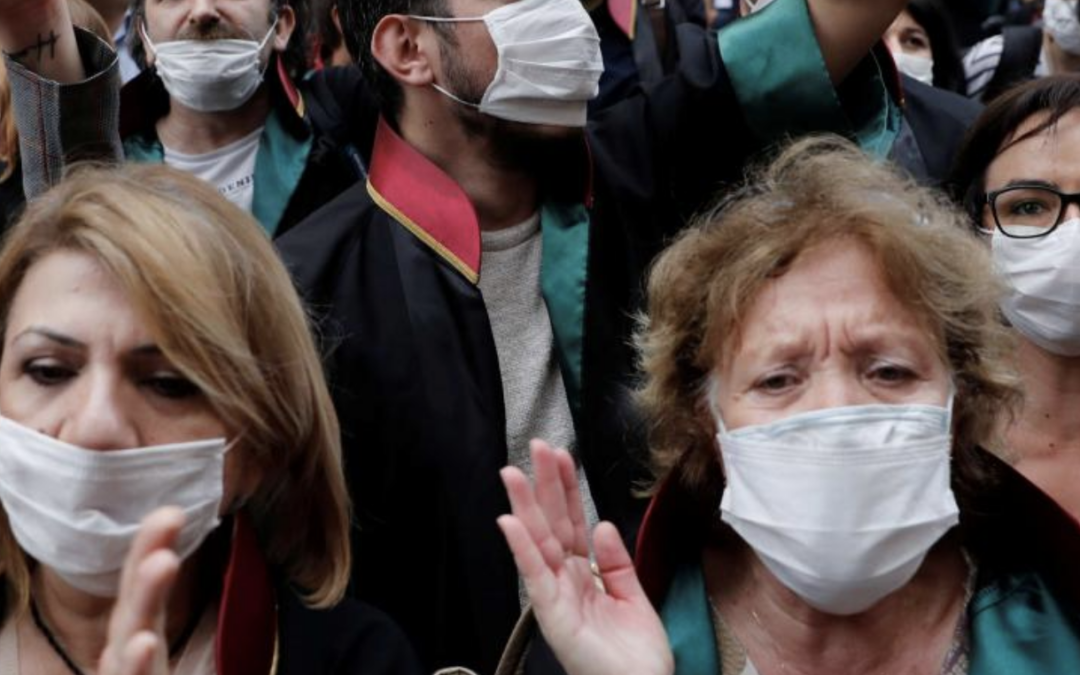
Jul 8, 2020 | News
Draft law reduces leading bar associations’ authority, leads to creation of rival groups, the ICJ and Human Rights Watch said today. The Turkish government’s plan to allow for multiple bar associations appears calculated to divide the legal profession along political lines and diminish the biggest bar associations’ role as human rights watchdogs, they added.
The current bar associations have not been consulted, and 78 bars out of 80 signed a statement opposing the plan.
The ICJ and Human Rights Watch have published a question and answer document explaining the draft law, scheduled for a vote in parliament in the coming days. The document outlines the government-led effort to reduce the influence of leading bar associations, reflecting the executive’s growing dissatisfaction with the bar associations’ public reporting on Turkey’s crisis for human rights and the rule of law.
“Turkey’s prominent bar associations play a key role in defending fair trial rights and scrutinizing human rights at a time when flagrant violation of rights is the norm in Turkey,” said Hugh Williamson, Europe and Central Asia director at Human Rights Watch.
“The government move to create multiple bars and dramatically cut leading bars’ representation at the national level is a clear divide-and-rule tactic to diminish the bar associations’ authority and watchdog role,” he added.
The proposed amendments provide that in provinces with over 5,000 lawyers, a group of at least 2,000 lawyers can establish alternative bar associations.
In big cities such as Istanbul, Ankara, and Izmir, several bar associations could be established. The amendments would also greatly reduce the representation of the largest bar associations at the national level within the Union of Turkish Bars, the Ankara-based umbrella body with significant financial resources it controls and distributes to provincial bars.
The fact that the vast majority of elected legal profession representatives oppose the move and that the likely impact will be to greatly diminish the authority of leading provincial bars that have been critical of certain government initiatives demonstrates that the aim of the proposed change is to shield the government from justified criticism, the ICJ and Human Rights Watch said.
Drastically cutting the number of delegates from large bar associations representing thousands of lawyers to the national Union of Turkish Bar Associations would reduce the influence of the large bar associations in electing the national group’s president and participating meaningfully in other decision-making functions.
A provincial bar association with fewer than 100 lawyers, such as Ardahan in northeastern Turkey, for example, would be represented by 4 delegates, compared with 3 at present.
But a bar association such as Izmir in western Turkey, with over 9,500 lawyers, which sends 35 delegates, would be entitled to only 5. Istanbul, Ankara, and Izmir Bar, which represent 55 percent of the lawyers in Turkey, would be entitled to only 7 percent of all delegates within the national union.
The atmosphere of conflict in which the draft law has been introduced, its timing, and the lack of consultation with the bar associations themselves provides credible grounds for great concern and skepticism over the government’s motives, the groups said.
Over the past year, Turkey’s presidency and government have made public statements strongly criticizing leading bar associations in response to the bars’ legitimate expression of concerns about Turkey’s rule of law crisis and executive interference in the justice system.
The government has reacted strongly against the bars’ scrutiny of its failure to uphold human rights obligations through bar association publication of reports on torture, enforced disappearances, and other rights abuses ignored by the authorities.
For these reasons, the government’s proposed amendments are clearly designed to achieve a political purpose unrelated to an effort to advance or strengthen standards in the legal profession, the ICJ and Human Rights Watch said.
The government’s move is politically divisive and will contribute to undermining the appearance of independence and impartiality in the justice system.
“The government should immediately withdraw the current proposed amendment and embark on a process of full consultation with bar associations,” said Róisín Pillay, Director of ICJ’s Europe and Central Asia Programme.
“The government’s plan as it stands will only deepen mistrust in Turkey’s justice system as lacking independence by dividing the legal profession along political lines. This could have disastrous long-term consequences for upholding the role and function of lawyers and for fair trial rights.”
Contact:
Róisín Pillay, Director of ICJ’s Europe and Central Asia Programme, t: +32-2-734-84-46 ; e: roisin.pillay(a)icj.org
Massimo Frigo, Senior Legal Adviser, ICJ’s Europe and Central Asia Programme, t: +41-79-749-99-49 ; e: massimo.frigo(a)icj.org ; Twitter: @maxfrigo
Download
Turkey-Q and A on the bar associations-Advocacy-2020-ENG (Q & A, in PDF)
Turkey-Q and A on the bar associations-News-Press releases-2020-TUR (Story in Turkish, PDF)
Turkey-Q and A on the bar associations-Advocacy-2020-TUR (Q & A in Turkish, PDF)

Jul 5, 2020 | News
The ICJ hosted live interviews with human rights defenders from Asia, Africa and Latin America to mark Pride Month, which is celebrated during the month of June in various parts of the world. The interviews took place from 22 June to 3 July 2020.
In total, 13 human rights defenders from 11 countries spanning three continents, who are working to uphold the human rights of of lesbians, gay, bisexual, transgender (LGBT) individuals, were interviewed.
The interviews discussed existing legal systems that discriminate on the basis of sexual orientation, gender identity and expression (SOGIE) and the impacts of COVID-19 on existing activism, .
The interviews aimed to provide quick snapshots of different country and regional contexts and a platform for LGBT activist voices on the varied and devastating impacts of COVID-19 on LGBT people.
Debunking cultural myths
In many countries around the world where people are criminalized or stigmatized as a result of harmful steretypes and prejudice on the grounds of their real or imputed SOGIE, public discourse tend to cast LGBT relationships and identities as threats to culture, religion or beliefs and the future of the nation. These interviews endeavoured to interrogate and debunk cultural and regional myths surrounding SOGIE identities as ‘Western’ constructs.
In a response to homosexuality being said to be ‘unAfrican’, Kutlwano Pearl Magashula, executive officer for program functions at the Other Foundation from Botswana, said:
“Utterances that suggest that homosexuality is unAfrican enforce stigma and violence and serve to carve deep roots in the consciousness of people around the world that breed discrimination and treating people differently.”
Devastating impacts of COVID-19 on LGBT people
Important impacts of COVID-19 on LGBT people were highlighted by different speakers, ranging from a loss of livelihood, vulnerability to violence at home and in public spaces, as well as challenges in accessing healthcare.
“There is violence against transgender women sex workers. The police arrest them, yell at them and shoot at them with rubber bullets. This is a recent episode here in Colombia and it is terrible. If they don’t work, they don’t have money to buy food and pay the rent. It is a difficult scenario,” Dejusticia researcher Santiago Carvajal Casas from Columbia said.
Pre-existing inequalities and landmark wins
Personal experiences of ‘life after’ important wins from around the world were shared. Some important gains from the decriminalization of consensual same-sex sexual relationships in Botswana and India, as well as the recent legalization of same-sex marriage in Taiwan must be celebrated. However, many of these wins may remain illusory for people who have been discriminated against on the basis of class, caste and other status inequality, or are without social support, especially in the face of COVID-19.
“What we really need is social protection, we need a safety-net for all those who are close to the poverty line and who are likely to go below the poverty line because of disasters like the COVID-19 epidemic or catastrophic out of pocket healthcare expenditures. We definitely need accessible healthcare for everyone and livelihood.” – Dr. L Ramakrishnan, public health professional and Vice-President of SAATHII, India
Watch the Facebook lives below:
Kutlwano Pearl Magashula, Executive Officer for Program Functions at the Other Foundation, on the board of LEGABIBO as the vice-chairperson and co-founder of the autonomous feminist collective Black Queer DocX (Botswana)
Busisiwe Deyi, Commissioner of CGE/ Lecturer of Jurisprudence (South Africa)
Letlhogonolo Mokgoroane, lawyer activist and podcaster (South Africa)
Lini Zurlia, advocacy officer at ASEAN SOGIE Caucus (ASEAN/Indonesia)
Yee Shan, member of Diversity Malaysia (Malaysia)
Sirasak Chaited, human rights campaigner, LGBT+ and sex worker rights activist (Thailand)
Santiago Carvajal Casas, Dejusticia researcher (Colombia)
Sih-Cheng (Sean) Du, Director of Policy Advocacy at Taiwan Tongzhi (LGBTQ+) Hotline Association (Taiwan)
Neeli Rana, transgender activist (Pakistan)
Riska Carolina, The Indonesian Plan Parenthood Association (IPPA) member (Indonesia)
Hla Myat Tun, Deputy Director from Colors Rainbow and Co-Director at &PROUD (Myanmar)
Dr. L Ramakrishnan, Vice President Saathii, activist, public health professional (India)
Nigel Mpemba Patel, Associate editor at the South African Journal on Human Rights and research consultant at ILGA World (Malawi)
***
Cover photo by Violaine Biex-Colors Rainbow, Myanmar.










